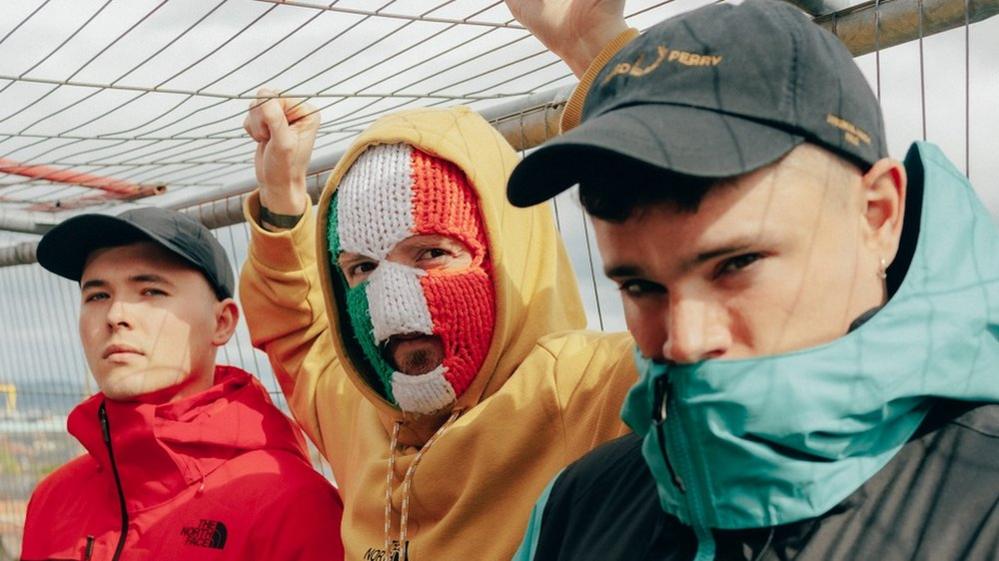Northern Ireland politics: What's important for young republicans?
- Published
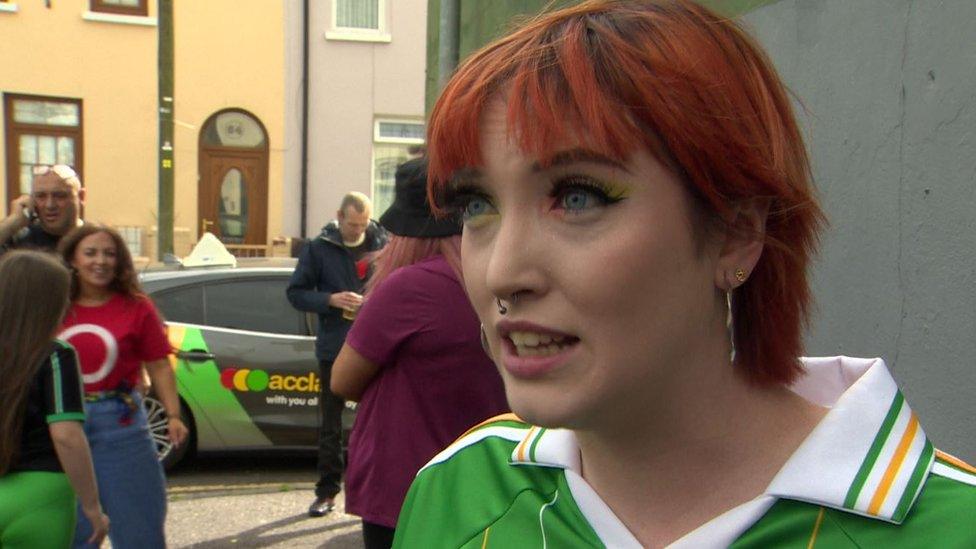
Amy Reid said she cared more about socialism than the constitutional question
Sinn Féin's electoral growth on both sides of the border has been fuelled by appealing to younger voters who care about more than a united Ireland.
Policies about housing, welfare and human rights have been at the centre of how the party has sold itself.
But the issue of the constitutional divide on the island continues to be used as a rallying cry.
Young republicans still wave and wear the colours of the Irish tricolour, a practice evident at a recent appearance by the Irish language hip-hop group Kneecap in Belfast.
The band has embraced controversy and attracted a lot of attention with its use of images associated with the Troubles.
Cartoon imagery of petrol bombs, balaclavas and barbed wire feature on the band's merchandise, which is selling well at an event to unveil a mural.
But many of their fans insist they want to talk about poverty not paramilitaries.
Socialist issues
"Obviously I care about traditional green and orange issues, but what I care about more is getting our kids fed, getting our people educated, getting our NHS up and running," said Amy Reid, who has a masters degree in peace studies.
"I care more about socialist issues than I care about the border to be brutally honest."
Kneecap also prefer to talk about present problems rather than past conflicts.
They say their music highlights current concerns for people on both sides of Belfast's peace walls.
"What's important is anti-austerity and what's important is the working class," said Móglaí Bap, a member of the hip-hop trio.
"Both sides of the community are suffering because of the Tory government.
"We can talk about images all day long but when we go to either side of the community that's all they care about - is old people, young people, disabled people and that's all that's important to us."
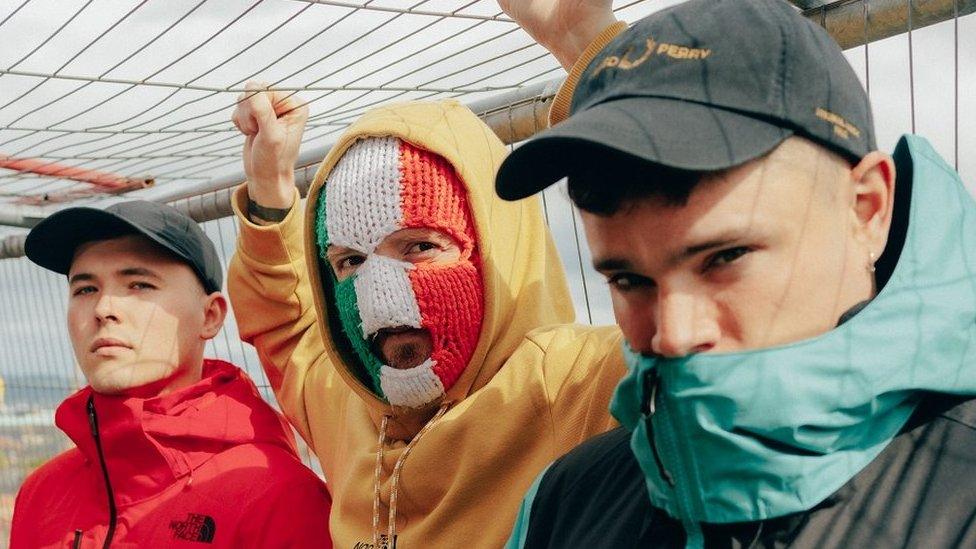
Kneecap have used imagery from the Troubles as part of their publicity
The images on Kneecap's T-shirts and head-scarves are undoubtedly tongue-in-cheek and their young fans treat them with a strange kind of nostalgia.
But they do refer to years of violence in which thousands of people were killed.
And as Móglaí Bap stood up to unveil Kneecap's latest mural, a man in the crowd shouted a pro-IRA slogan.
Móglaí Bap was quick to point out in response: "I didn't start that BBC."
However, some in the crowd were prepared to defend the cry of 'Ooh, ahh, up the Ra'.
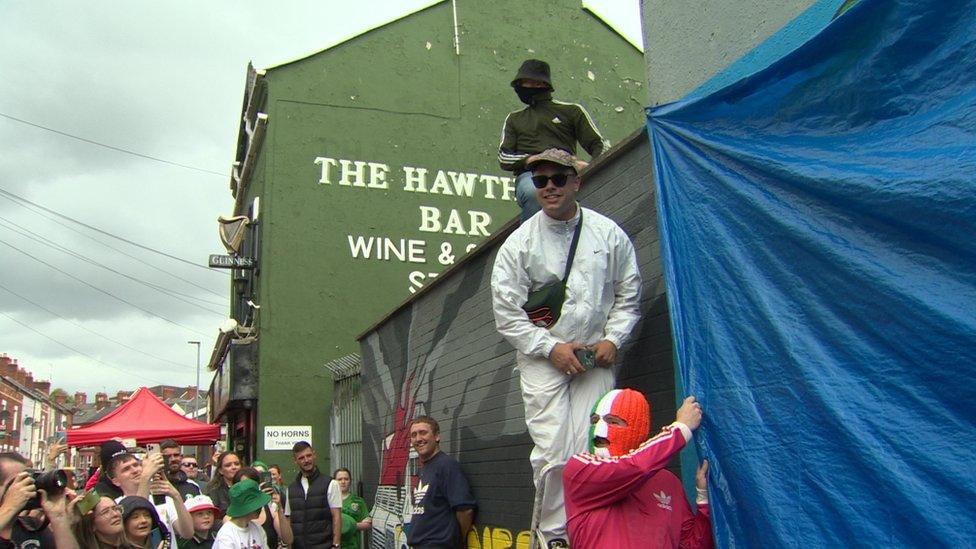
Kneecap unveiled a mural which read England get out of Ireland
"The difference between the old IRA and the new IRA - is a large gap," argued Izzy Ó Tighearnán, who was visiting Belfast from Galway to see Kneecap.
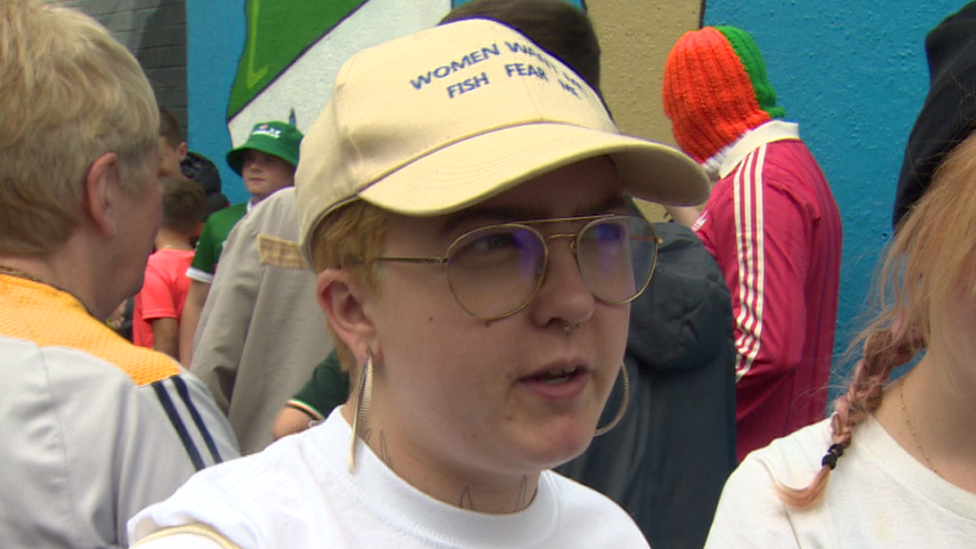
Izzy Ó Tighearnán was visiting Belfast from Galway to see Kneecap
"We still have to remember that the group that we are shouting about aren't the people who are active at the moment. They're not the terrorist group that we support."
Revisionist view of IRA
During the Troubles, support for violence was seen as the issue that divided republicans and nationalists.
Sinn Féin had an historical link with the Provisional IRA while the SDLP said all conflict was wrong.
"The IRA were responsible for the most deaths of Catholic civilians here - more than anybody else," said Karl Duncan.
"I would say that's definitely not a movement that I would want to glorify."
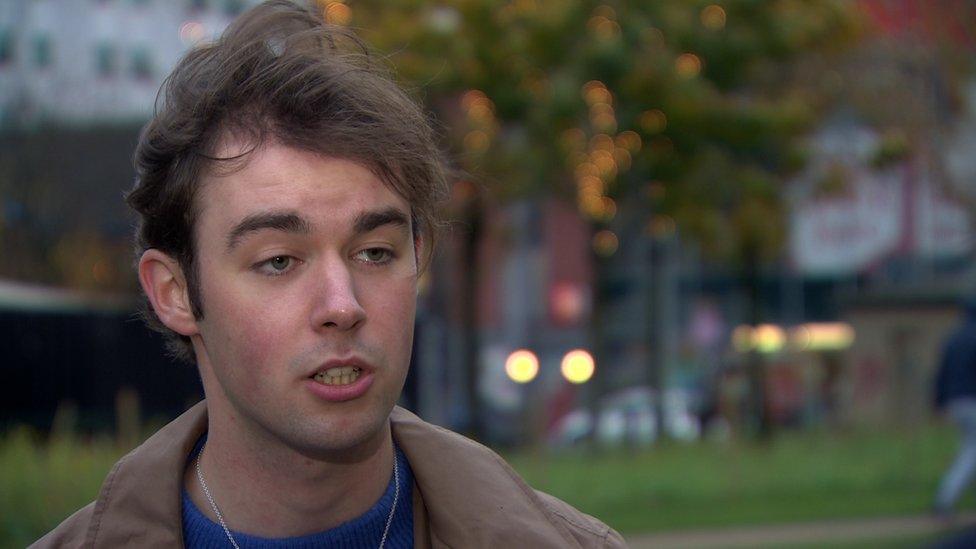
Karl Duncan said most nationalists did not support the IRA
At the age of 21, Karl was recently appointed chairperson of the SDLP's Foyle constituency branch. His mother is from a republican background in Londonderry, while his father grew up within a unionist family in Bangor.
"There is a bit of revisionism, for example, with the IRA in that a lot of people, especially my generation, seem to think they were some popular movement," Karl said.
"The IRA were never endorsed by the majority of nationalists in this place."
'Nationalist not republican'
That dividing line between nationalism and republicanism has become more blurred, however, as a result of the success of the peace process.
"I would be very happy to identify myself as a nationalist but I wouldn't be as comfortable to say that I'm a republican but I'm not sure why," said Sophie McCormick, who BBC News NI met at the Kneecap event.
"I don't know if it's the connotations that come from saying you are a republican in relation to the Troubles.
"I actually can't put my finger on why it is."
The polls would suggest that it is a concern that is shrinking.
Many of Sinn Féin's younger voters simply do not remember the Troubles.
In a time of relative peace, inequality has become their focus, even if Northern Ireland continues to struggle with political instability and its past.
Related topics
- Published19 October 2023
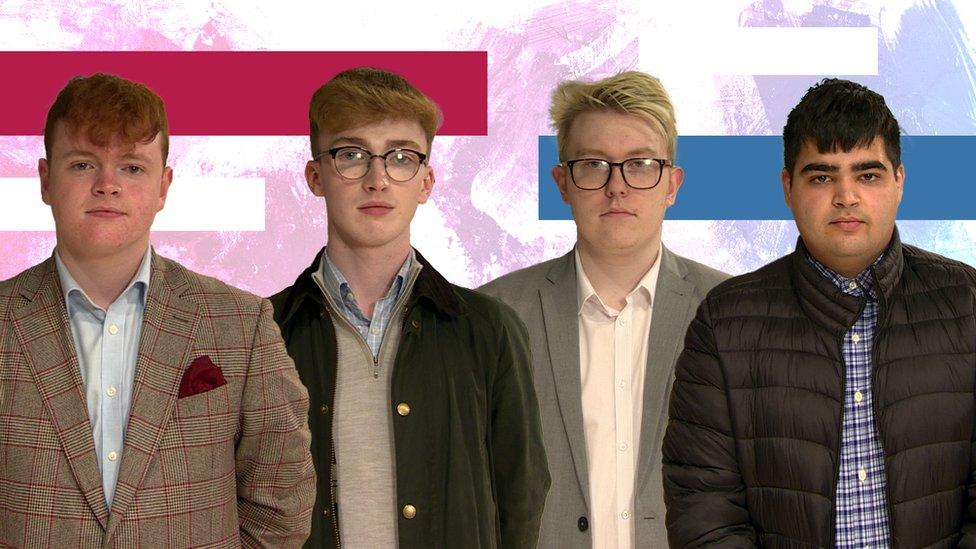
- Published11 August 2023
